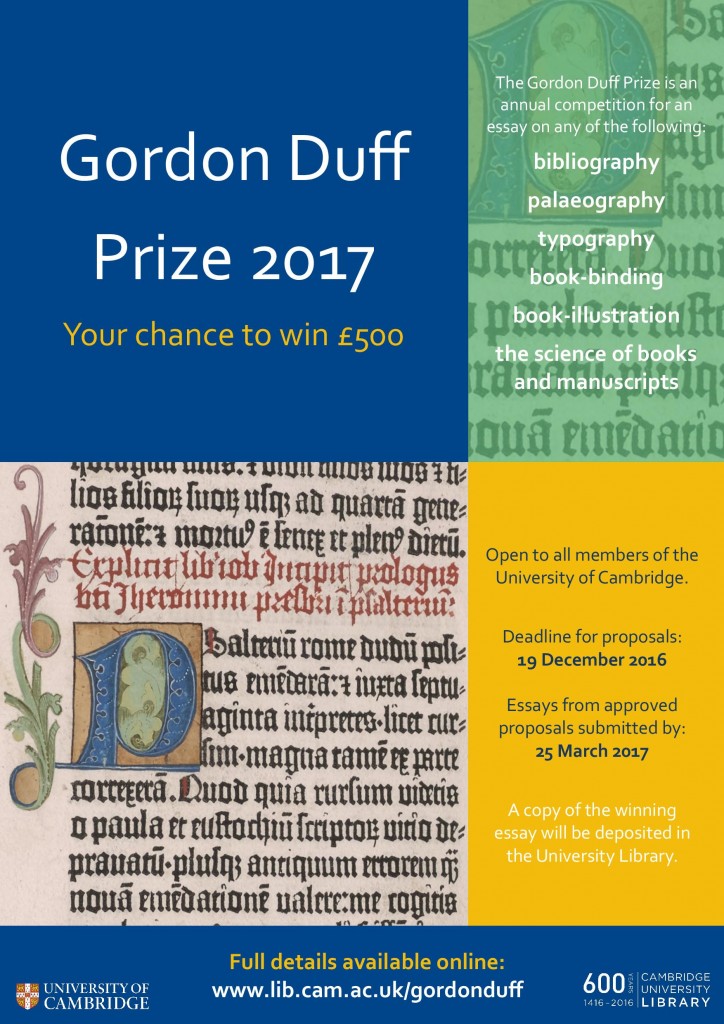
Bibliographical Prizes
Entries are now open for two prizes that Cambridge University Library offers annually.
 The Gordon Duff prize, named after the celebrated bibliographer of 15th-century English books who died in 1924, is awarded for an essay on a subject relating to the science or arts of books and manuscripts, including bibliography, palaeography, typography, bookbinding and book illustration.
The Gordon Duff prize, named after the celebrated bibliographer of 15th-century English books who died in 1924, is awarded for an essay on a subject relating to the science or arts of books and manuscripts, including bibliography, palaeography, typography, bookbinding and book illustration.
There is an award of £500 for the winner(s) of the competition: the prize can be shared for a co-written work or attributed to two separate entries. To enter, candidates must first submit a proposed subject for their essay to Dr Jill Whitelock (jw330@cam.ac.uk) by 19 December 2016. They will be notified in February whether or not their topic has been approved and then have until 25 March to submit their essay. The 2016 winning essay by Michael J. Sullivan concerned a Tennyson notebook now housed in the Wren Library.
 The Rose book-collecting prize is aimed at celebrating and encouraging student book collectors. It is open to any University of Cambridge student who owns a coherent collection of books. The collection could be the works of a particular author or topic, from any period or genre or it may reflect bibliographical features (edition, illustrations, binding, etc.).
The Rose book-collecting prize is aimed at celebrating and encouraging student book collectors. It is open to any University of Cambridge student who owns a coherent collection of books. The collection could be the works of a particular author or topic, from any period or genre or it may reflect bibliographical features (edition, illustrations, binding, etc.).
Entrants submit a 500-word essay explaining the genesis of the collection, what its interest is to the owner, and ideas for future development. This must be accompanied by a bibliographic list of the books, with brief annotations (maximum 10 A4 sides in all, including the essay). The criteria for evaluation will be the intelligence and originality of the collection, its coherence as a collection, as well as the thought, creativity, and persistence demonstrated in defining it and bringing it into being. The prizes are £500 and 10 years’ membership of the Friends of Cambridge University Library. Entries must be submitted by 17 January 2017. The topic of last year’s winning collection by Edwin Rose was ‘Popular natural history and natural philosophy of the eighteenth century’.
